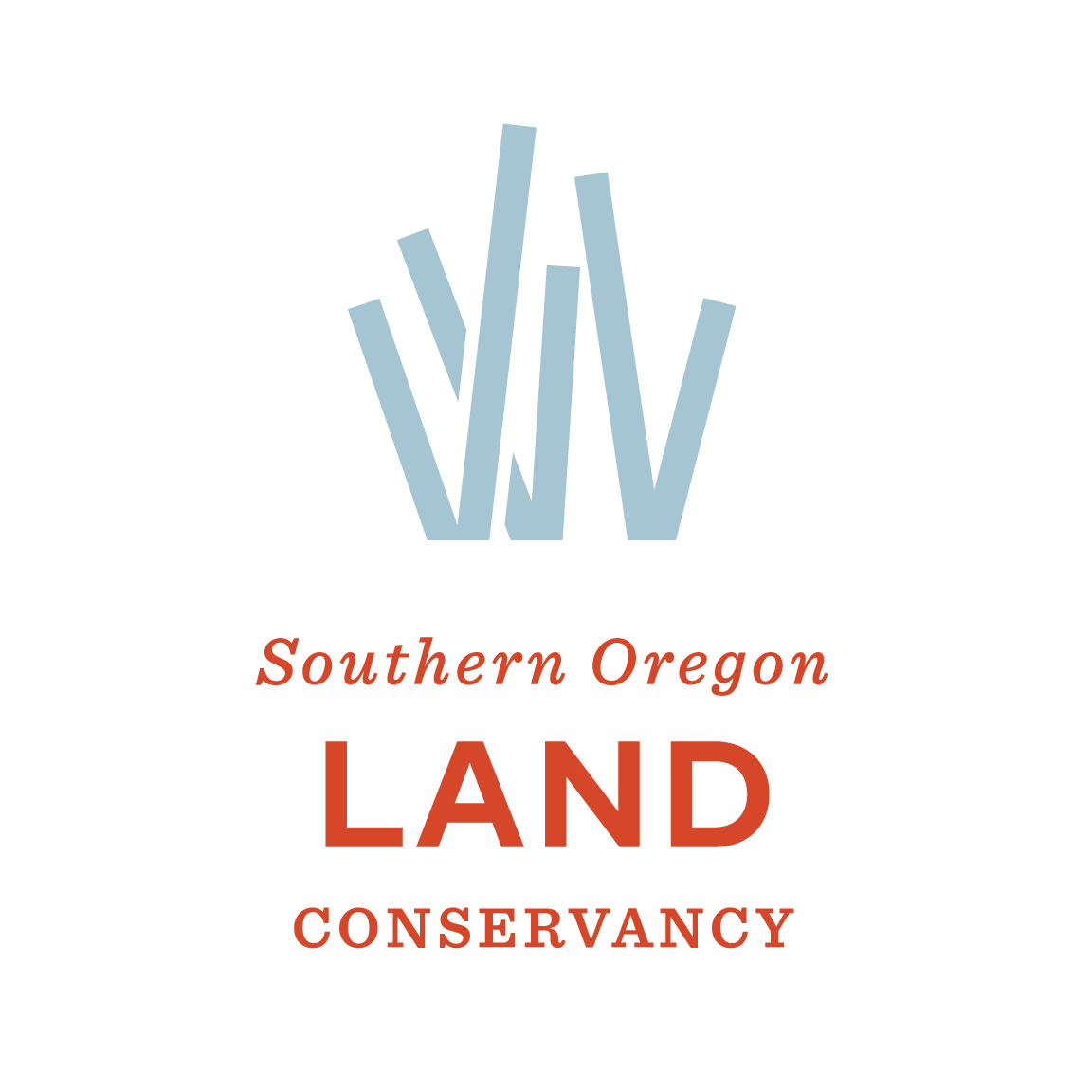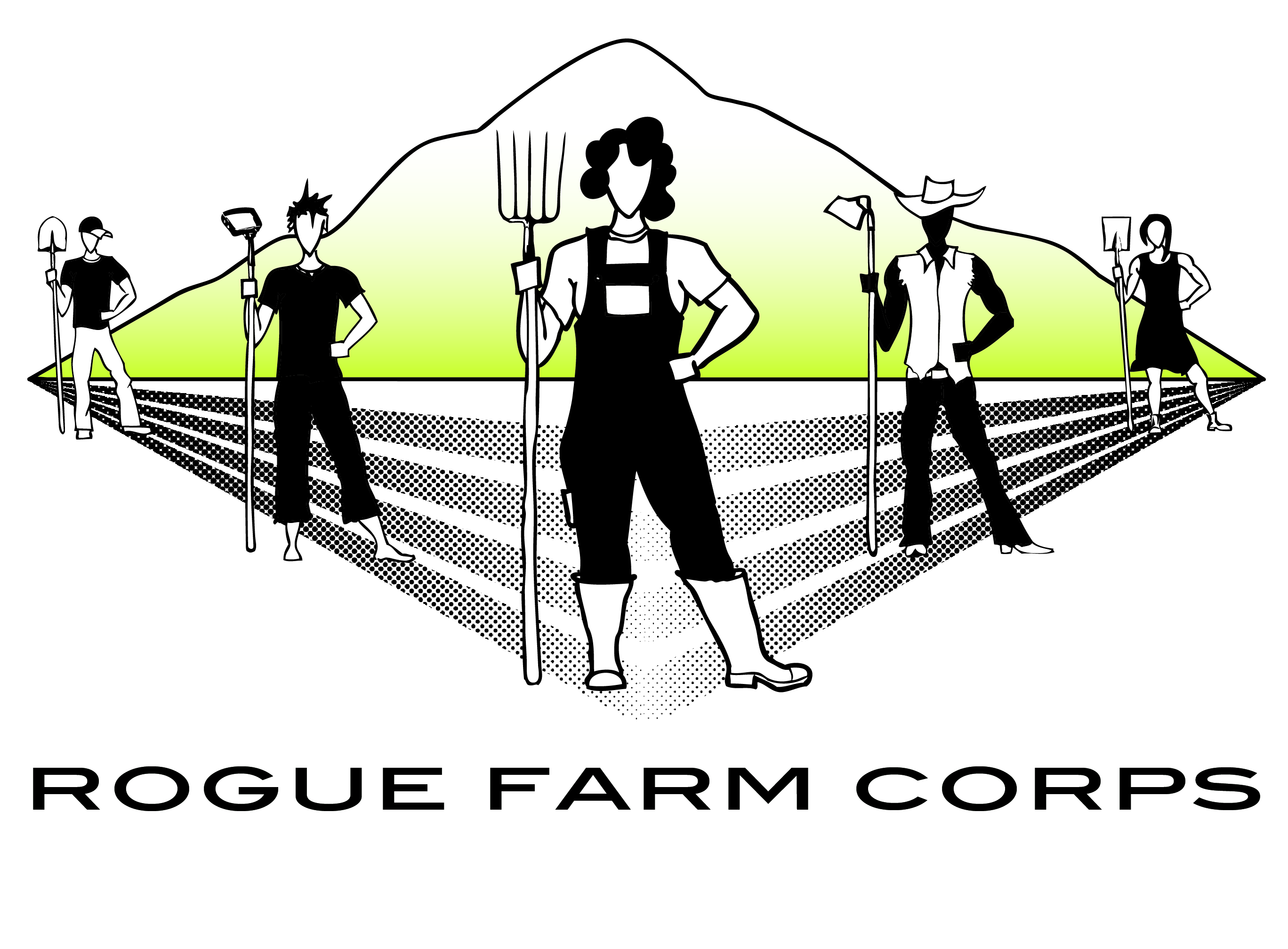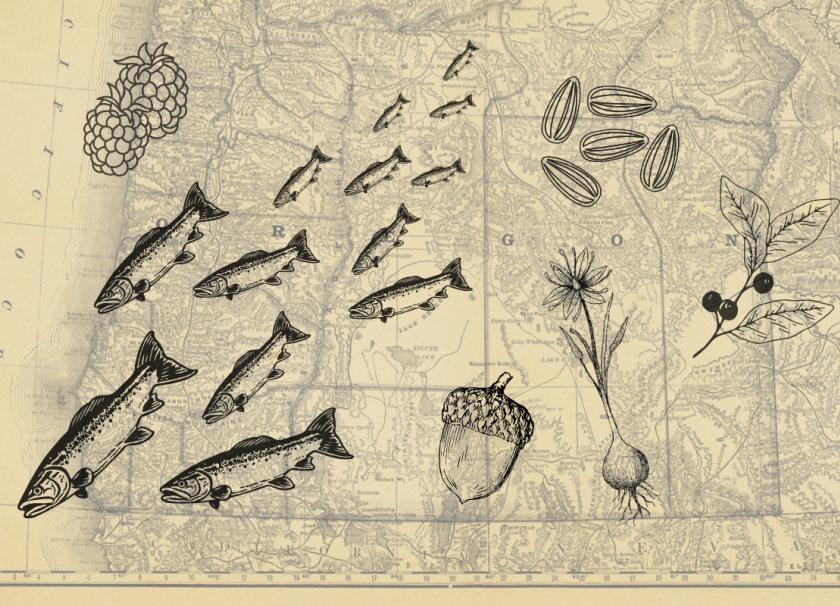
Celebrating Indigenous Food and Traditions
Each October, when so many across the country celebrate Indigenous Peoples' Day, the Ashland Food Co-op pauses to reflect on the land we call home, the people who've cared for it, and how food and connections to the land can help us return that inheritance in a positive way. This holiday isn’t just a request that we correct the record of history, but that we also plant a greater sense of home, appreciation, and responsibility. In southern Oregon, that means exploring the histories and teachings of the Shasta, Takelma, Latgawa, and other tribes whose ancestral lands include what is now Ashland.
Indigenous peoples in our region lived prior to Euro-American settlement in a deep relationship with food cycles and place. In the Rogue Valley and along the Table Rocks, the Takelma were sometimes called “Dagelma,” meaning “those who dwell by the river.” Life revolved around the waters and the changing seasons. Salmon filled their nets, while wild roots, berries, seeds, and game rounded out their meals. As the seasons changed, they followed the rhythms of the land, moving between elevations to fish, gather, hunt, and carefully store what they would need for the months ahead. Their activity wasn’t just for survival, but for reciprocity: farming soils, burning to maintain open meadows, incubating plant habitats, and honoring areas of ceremony. Their ways of tending the land remind us that we still have much to learn about balance, respect, and stewardship.
Deep disruption came in the mid-1800s: the Rogue River Wars of 1855–1856, when numerous Indigenous communities were forcibly relocated, treaties were violated, and war and disease devastated populations; the brief existence of the Table Rock Reservation was formed and abolished; and numerous descendants of these groups found themselves caught up in confederated treaties or relocated to other reservations. In spite of this break, Indigenous families still reside here, remember, revive language, and preserve cultural food traditions throughout Oregon today.
Food is one of the most powerful connections we have to memory, respect, and the planet itself. Here in Oregon, "first foods" like salmon, roots, berries, and game are still central to Indigenous food sovereignty.This work in southern Oregon centers on renewal: restoring native plants, rebuilding traditional harvesting, and restoring both cultural connections and care for the earth. By the fact that co-ops are community, we can be the change by learning about Indigenous foodways, finding Indigenous-grown produce when possible, and supporting organizations that uplift Native voices.
Indigenous Peoples’ Day reminds us that honoring the past is not only about memory, but also about the actions we take today. We encourage you and our community to become conscious of whose territory you stand on, to contribute financially to Native nonprofits, and to buy at Indigenous food producers. There's something good we can do towards reciprocity, justice, and healthier relations with people and places.
Sources:
- OSF Ashland Land Acknowledgment: https://www.osfashland.org/land-acknowledgment
- BLM Table Rocks History: https://www.blm.gov/programs/recreation/recreation-activities/oregon-washington/tablerocks/cultural-history/regional-tribes
- Rogue River Wars: https://en.wikipedia.org/wiki/Rogue_River_Wars
- Table Rock Reservation: https://en.wikipedia.org/wiki/Table_Rock_Indian_Reservation
- Travel Oregon – Indigenous Foods: https://traveloregon.com/things-to-do/culture-history/celebrate-oregons-indigenous-foods/
- My Oregon – Indigenous Foodways in Southern Oregon: https://www.myoregon.gov/2022/12/20/how-indigenous-communities-are-reclaiming-knowledge-and-relationships-to-first-foods-in-southern-oregon/
More Co-op News
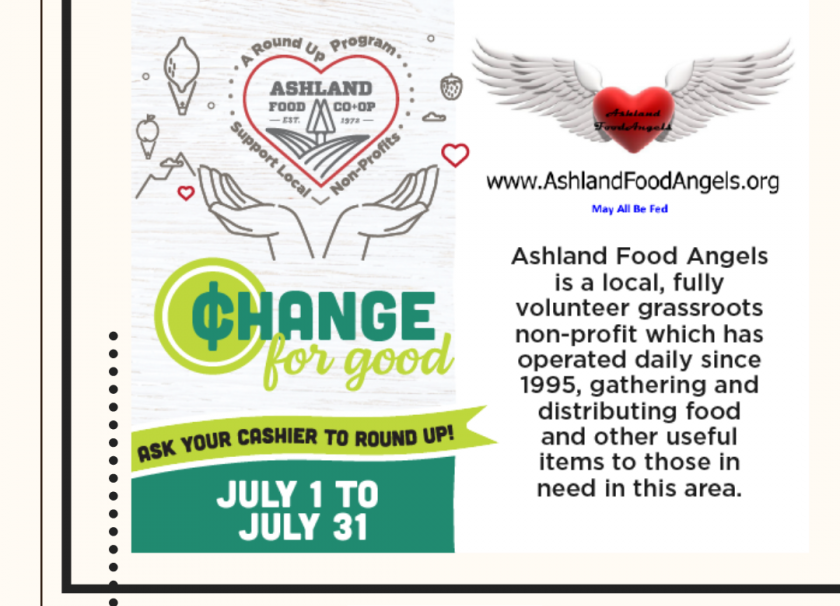
July Change for Good Partner: Ashland Food Angels
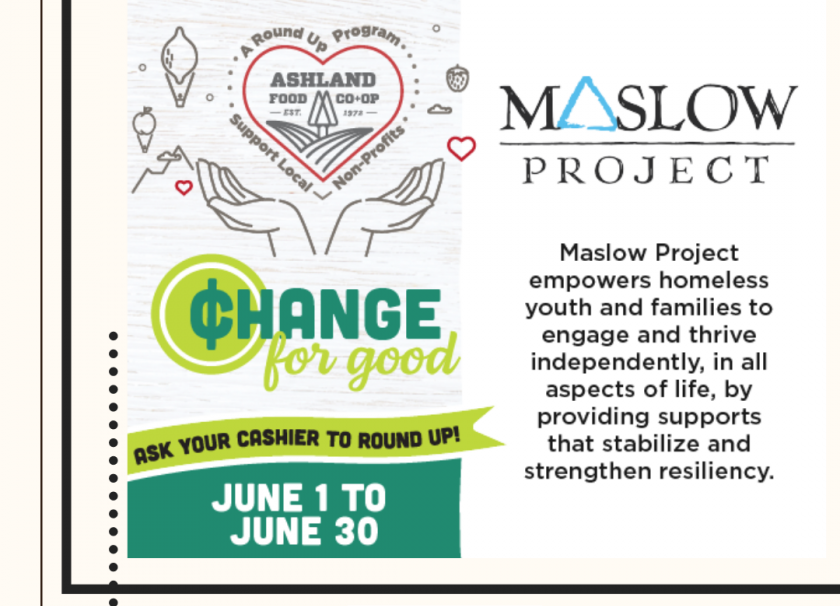
June Change for Good Partner: Maslow Project

Celebrate Ashland Food Co-op's 50th Anniversary
Ashland Food Co-op has been a staple in our community for 50 years and invites you to celebrate this anniversary with them on June 3rd, 2022 from 5:00 PM-8:00 PM, at the AFC employee parking lot for dancing, food, face painting and more!
Music by Eight Dollar Mountain and Wild and Blue.
Siano's Karibbean Cookhouse, Walkabout Brewing Co. and Rogue Kombucha will be joining us with delicious food and beverages available for purchase.
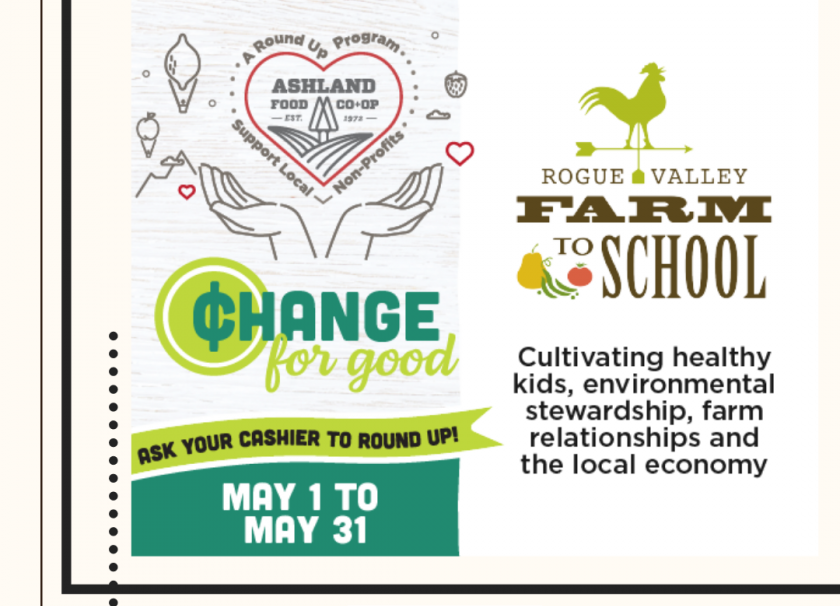
May Change for Good Recipient: Rogue Valley Farm to School
Open House Hiring Event
The Ashland Food Co-op is excited to provide employees with a fun, professional workplace with potential for growth and advancement. We see every day as an opportunity to better our community, our planet, and ourselves! Eligible employees will receive a 15% employee discount on all store purchases, affordable healthcare, 3.5 weeks of paid time off in your first year for vacation and sick days, matching 401K plan after 1 year, productivity and profit sharing bonus opportunities, free organic produce every day... and so much more!

Standing with Democracy
Our Community Food Co-op has joined, along with other co-ops across the nation, to donate to a Disaster Recovery Fund organized by National Co+op Grocers (NCG) Cooperation, Cooperative Development Foundation (CDF) and National Co-op Business Association of the United States (NCBA CLUSA) to Co-op Ukraine to support cooperatives impacted by the war in Ukraine.


Thank you for 50 years.
Celebrate our anniversary with us!
June 3rd, 2022 at the Ashland Food Co-op:
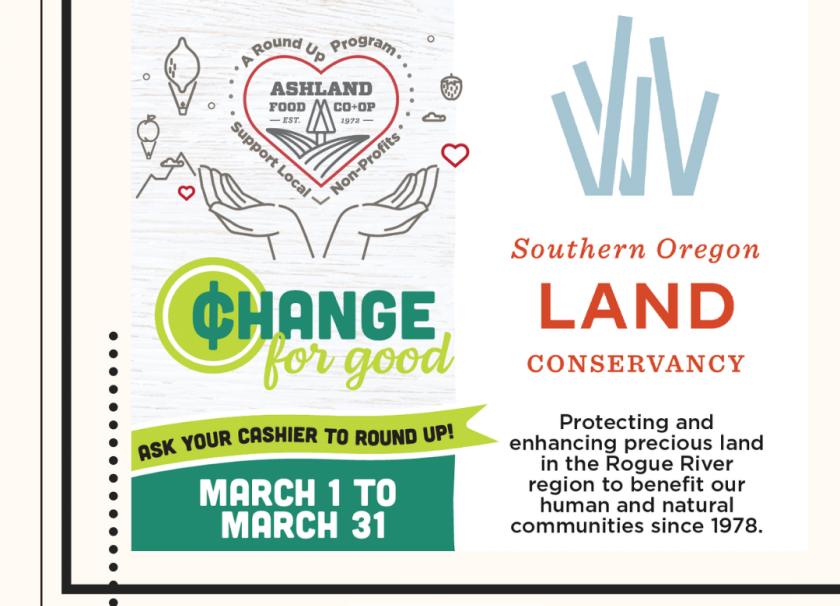
March Change for Good Partner: Southern Oregon Land Conservancy
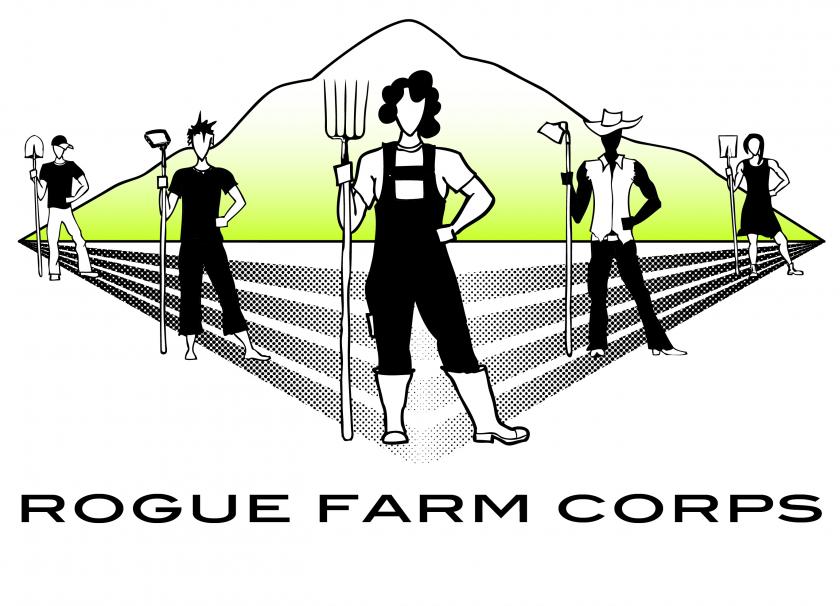
February Change for Good Partner: Rogue Farm Corps
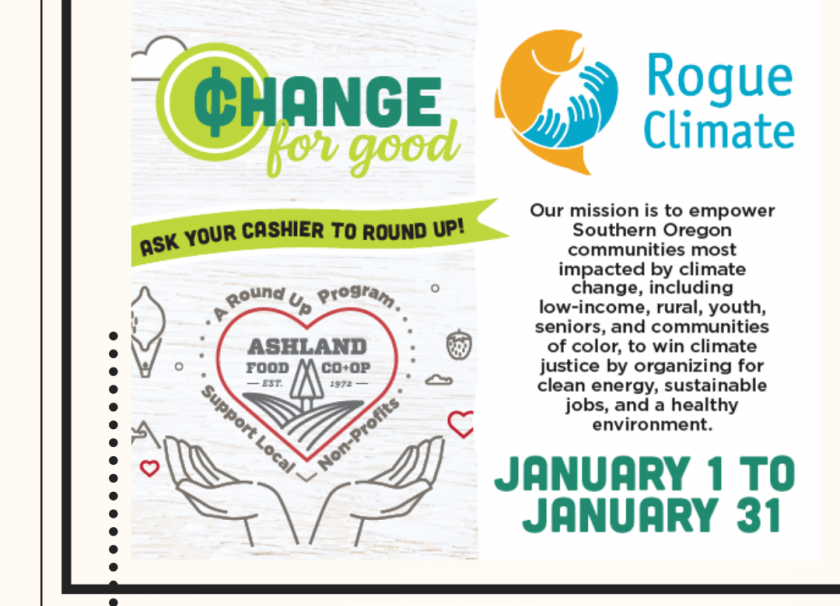
January Change for Good Partner: Rogue Climate
January's Change for Good Partner is
local nonprofit Rogue Climate
Rogue Climate was founded in 2013 in the Rogue Valley of Southern Oregon.

August Change for Good Partner: Community Works
August's Change for Good Partner is

November Change for Good Partner: Southern Oregon Climate Action Now
November Change for Good Partner: Southern Oregon Climate Action Now
November's Change for Good Partner is


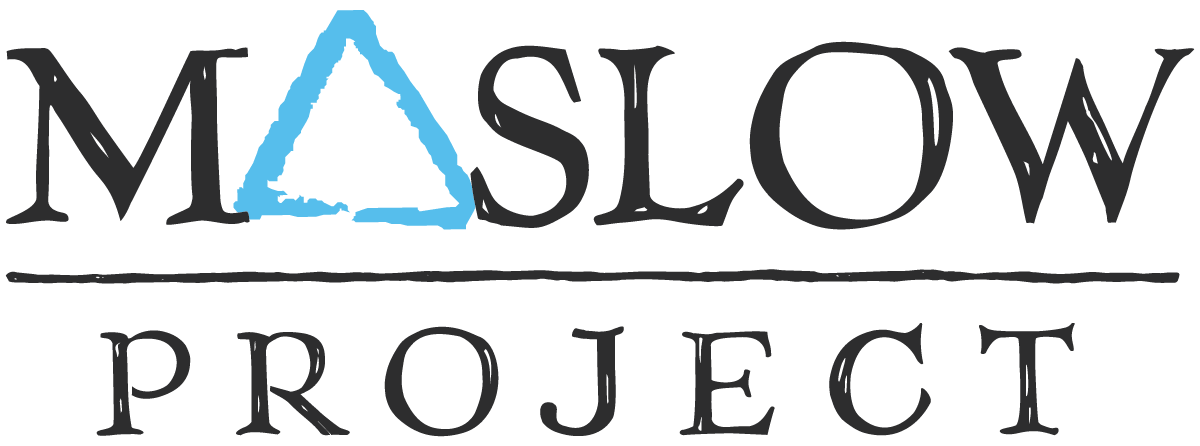
.png)
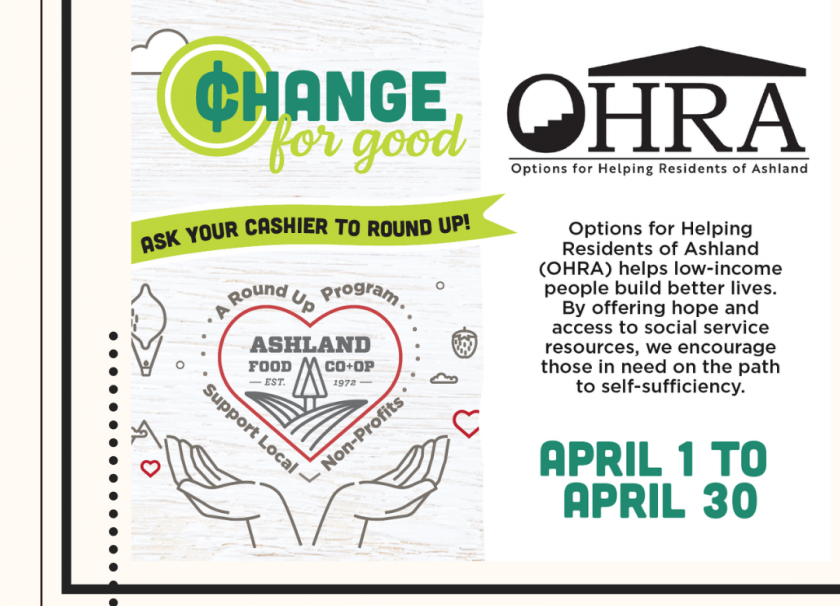
.jpg)
